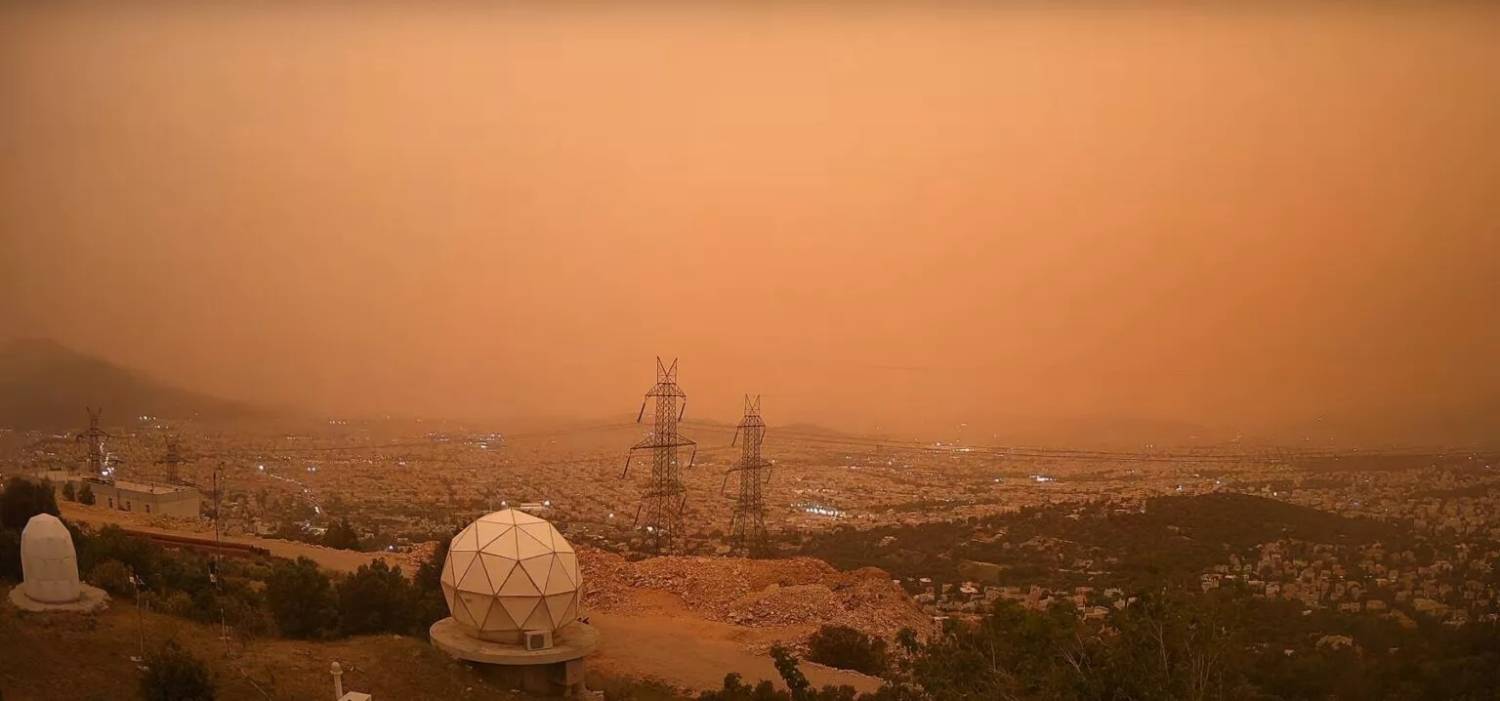An impressive timelapse video has been released by meteo.gr/National Observatory of Athens regarding the African dust that “choked” Athens on the 23rd and 24th of April.
As seen in the footage captured by the observatory’s cameras in Penteli, the dust from the Sahara, also known as “Minerva Red,” turned the landscape orange within a few hours and made the atmosphere stifling.
“A new episode, possibly even more intense, may occur until mid-May.”
Professor of Environmental Engineering at AUTh, Dimosthenis Sarigiannis, discussed the phenomenon in a recent interview, sounding the alarm and estimating that we may encounter it more frequently.
“We have encountered African dust perhaps 15 years ago,” he emphasized, noting that “we will now have a higher frequency of such events and earlier in the summer season.”
According to the professor, the phenomenon “is characteristic of drought and relative desertification of soils, resulting in a much greater volume of particles,” and he noted that “wind patterns change as the climate changes. This affects even more in relation to African dust.”
He further estimated that a similar or even more intense episode of African dust is expected in May. “We expect to see at least one more new episode with African dust until mid-May, which could be of the same intensity as the current one, perhaps even more depending on the prevailing climatic conditions,” he said.
However, as he said, “things will be much better from May onwards,” with a new episode expected in the fall.
What causes concern
Sarigiannis emphasized the increased frequency of appearance of African dust as well as the duration of the episode and the volume of particles and stressed “this is a new element and has to do with climate change.”
“The worrying thing,” he said, “is that this burden adds to the particle pollution we already have in the major urban centers of Greece, in Athens, Thessaloniki, Volos, for example, where air quality, objectively speaking, is not very good in relation to particles.”
“We need to adapt to what it means, which means that the National Health System should be ready to deal with acute cases of people who will have problems,” he added.
He concluded by saying that “we have to take both adaptation actions, so that we are ready to deal with such acute episodes, and on the other hand, to do real preventive work, reducing the level of pollution from particles in our cities, so that when a wave from Africa comes on some days, it does not come to settle on an already high background of atmospheric pollution.”






